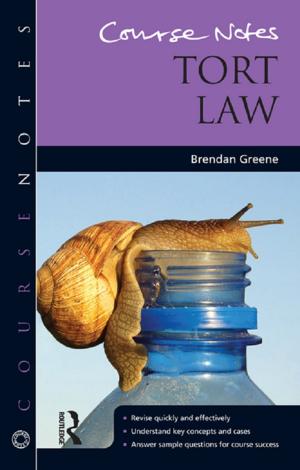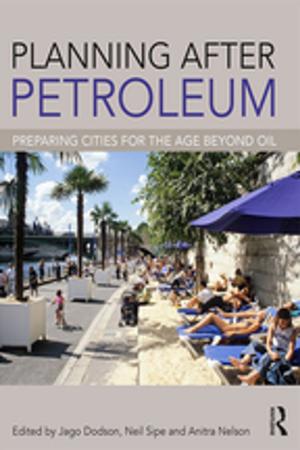The Peer Guide to Applied Sport Psychology for Consultants in Training
Nonfiction, Health & Well Being, Psychology, Applied Psychology| Author: | ISBN: | 9781315404042 | |
| Publisher: | Taylor and Francis | Publication: | November 10, 2016 |
| Imprint: | Routledge | Language: | English |
| Author: | |
| ISBN: | 9781315404042 |
| Publisher: | Taylor and Francis |
| Publication: | November 10, 2016 |
| Imprint: | Routledge |
| Language: | English |
Successful sport psychology professionals have benefitted from stimulating conversations, challenging questions, support, camaraderie, guidance, and advice offered by their graduate school classmates. Peer relationships are vital and valued aspects of professional development, with many of the relationships formed during school, serving as the closest confidences and strongest friendships throughout careers and lifetimes. Yet, the voices and experiences of fellow graduate students are sparsely reported in the sport psychology literature, and profoundly silent in textbooks. The Peer Guide to Applied Sport Psychology for Consultants in Training provides a platform for the influential voices of peers, with whom graduate students relate and connect on a visceral level.
Mimicking the environment of a thriving classroom, each chapter within the Peer Guide is primarily authored by graduate students, or in some cases recent graduates, with an academic mentor serving a secondary role. The chapter topics were selected by the editors—all of whom are experienced graduate instructors and have taught and mentored many young professionals—as areas where graduate students are commonly challenged, and correspondingly, where peer support and guidance are most valued. These topics include developing a theoretical orientation to performance excellence, utilizing science to guide practice, ethics, getting the most from supervision, initial experiences in consultation, working with both individuals and groups, and multicultural considerations. The chapters are written in a personal, relatable tone and provide science and practice, challenge and comfort, humor and vulnerability, and insights and anecdotes that are particularly meaningful and accessible coming from peers. A unique addition to the sport psychology literature, this volume is a key resource for developing and established consultants alike.
Successful sport psychology professionals have benefitted from stimulating conversations, challenging questions, support, camaraderie, guidance, and advice offered by their graduate school classmates. Peer relationships are vital and valued aspects of professional development, with many of the relationships formed during school, serving as the closest confidences and strongest friendships throughout careers and lifetimes. Yet, the voices and experiences of fellow graduate students are sparsely reported in the sport psychology literature, and profoundly silent in textbooks. The Peer Guide to Applied Sport Psychology for Consultants in Training provides a platform for the influential voices of peers, with whom graduate students relate and connect on a visceral level.
Mimicking the environment of a thriving classroom, each chapter within the Peer Guide is primarily authored by graduate students, or in some cases recent graduates, with an academic mentor serving a secondary role. The chapter topics were selected by the editors—all of whom are experienced graduate instructors and have taught and mentored many young professionals—as areas where graduate students are commonly challenged, and correspondingly, where peer support and guidance are most valued. These topics include developing a theoretical orientation to performance excellence, utilizing science to guide practice, ethics, getting the most from supervision, initial experiences in consultation, working with both individuals and groups, and multicultural considerations. The chapters are written in a personal, relatable tone and provide science and practice, challenge and comfort, humor and vulnerability, and insights and anecdotes that are particularly meaningful and accessible coming from peers. A unique addition to the sport psychology literature, this volume is a key resource for developing and established consultants alike.















